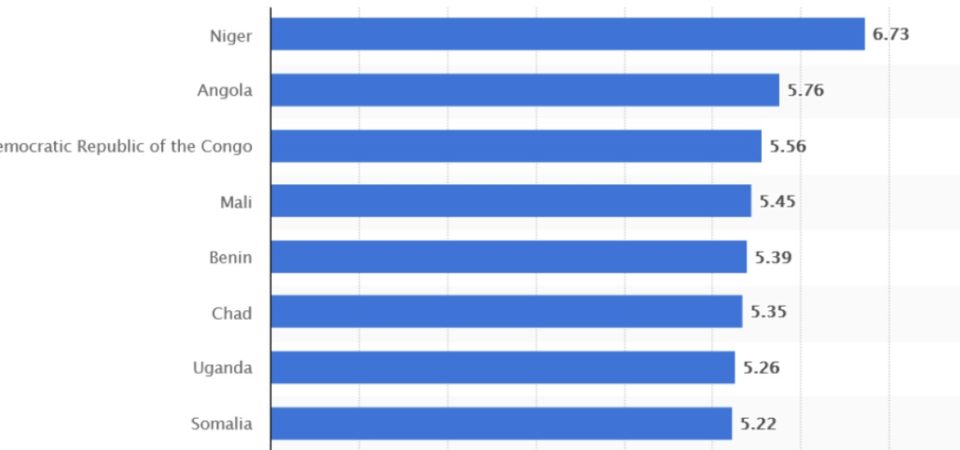Item Link: Access the Resource
Date of Publication: March 5
Year of Publication: 2024
Publication City: South Burlington, VT
Publisher: Population Media Center
Author(s): William Ryerson
Many economists raise concerns that low birth rates will lead to slower economic growth. In reality, a smaller population is exactly what the climate and biosphere need. Since it is the climate and biosphere that make the world habitable, they must take priority over economic considerations.
High fertility rates in developing countries like Nigeria are a leading cause of poverty and stagnant economies. Despite economist Julian Simon’s belief that increasing fertility will lead to having more consumers and economic growth, in the developing world, large families lead to families buying just the bare necessities for survival, leaving little income at the personal or national level available to form investment capital. Lack of investment capital depresses growth of productivity of industry and leads to high unemployment (which is exacerbated by rapid growth in the numbers seeking employment). Lack of capital also contributes to a country’s inability to invest in education, government, infrastructure, environmental needs, and other areas that can contribute to the long-term productivity of the economy and the living standards of the people.
Read the full article with infographics here.
The views and opinions expressed through the MAHB Website are those of the contributing authors and do not necessarily reflect an official position of the MAHB. The MAHB aims to share a range of perspectives and welcomes the discussions that they prompt.
